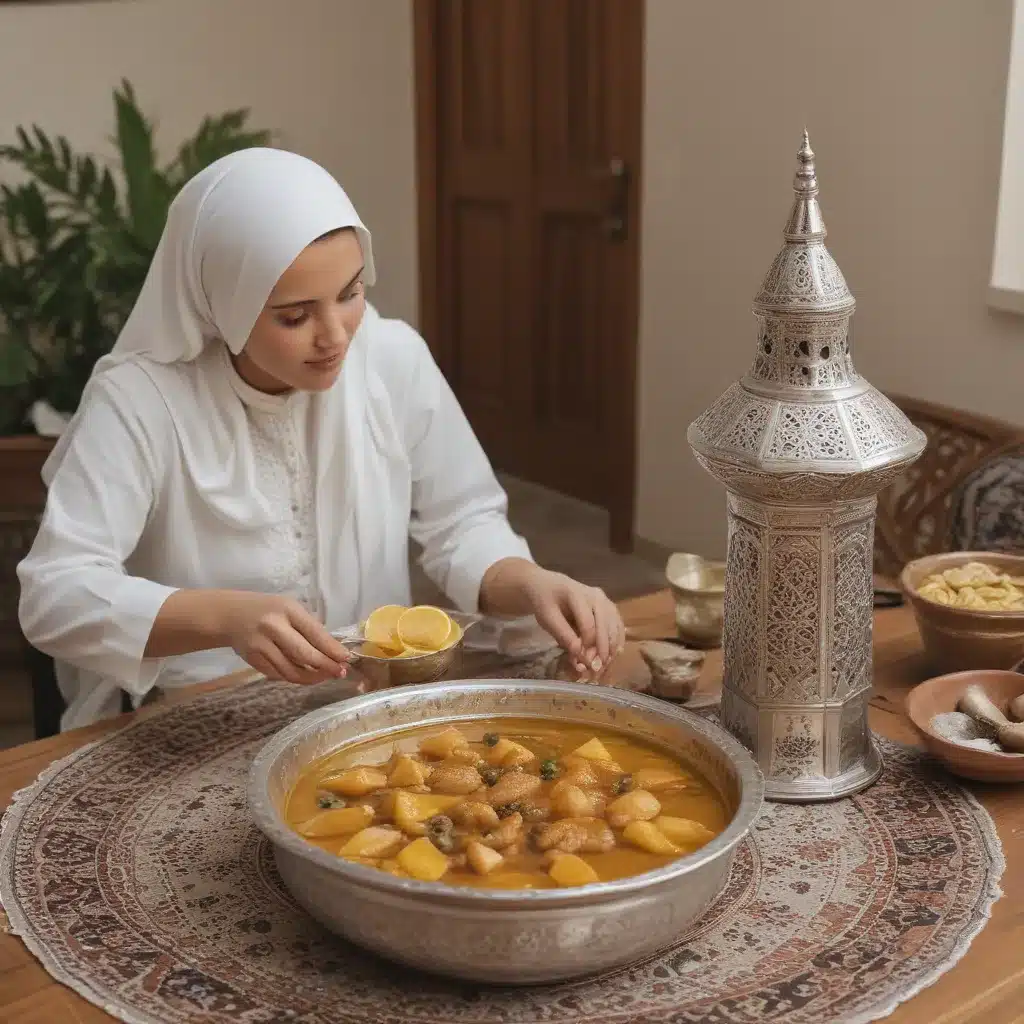
Flirting with Flaky Perfection
Twenty-some years ago, I had the privilege of tasting something that would forever change my understanding of pastry perfection. It happened at a Moroccan cooking demonstration in New York City, where I was introduced to the captivating world of warqa – the elusive and tantalizing foundation of the beloved Moroccan dish, bstilla.
As I sank my teeth into that first ethereal morsel, a symphony of flavors and textures danced on my palate. The paper-thin, shatteringly crisp layers gave way to a rich, savory filling of spiced chicken and ground almonds, dusted with a whisper of cinnamon and sugar. It was a revelation – a pastry so light and delicate, it seemed to defy the laws of baking.
Little did I know that I had just experienced the “world’s hardest to make dough,” as described by legendary pastry expert Esther McManus. Warqa, also known as warka or brik, is the supreme king of flaky doughs, far surpassing even the most virtuosic puff pastry in its sheer delicacy and complexity.
The Warqa Witches of Morocco
Esther, whom many affectionately call “Maman Warqa,” generously offered to teach me the secrets of this captivating pastry. She explained that in Morocco, there are skilled “warqa witches” who travel from house to house, meticulously crafting the gossamer-thin sheets by hand. It’s a true art form, requiring lightning-fast reflexes, perfect heat control, and an almost mystical understanding of the dough’s temperament.
According to renowned baking author Rose Levy Beranbaum, Esther had spent five years perfecting her own warqa technique after arriving in the United States, constantly experimenting and honing her skills. “Warqa is the most impossibly difficult dough in the world,” Esther had confessed, “and watching it being made and trying my hand at it, I totally agreed.”
The Pursuit of Pastry Perfection
Eager to learn from the master, I made my way to Philadelphia, where Esther welcomed me into her home. As I watched her deftly manipulate the dough, I was captivated by the sheer artistry of her movements. She would dab the wet batter onto a scorching hot pan, flicking her wrist to expose a fresh layer of dough with each touch. It was a delicate dance, requiring split-second timing and an almost preternatural sensitivity to the dough’s behavior.
Even with Esther’s patient guidance, I struggled to replicate her finesse. The paper-thin discs I managed to produce were a far cry from the ethereal, overlapping layers she could effortlessly create. “It’s a tight, delicate balance of correct heat, timing, touch, and flick of the wrist,” she would remind me, as I watched each of my attempts lift off the pan, stubbornly refusing to cooperate.
Esther, ever the encouraging mentor, assured me that I was the most likely of all her students to eventually master the art of warqa. But as she candidly admitted, it had taken her five years of constant practice to reach that level of proficiency. “I think I’ll need to retire first to have the time,” I joked, only half-kidding.
Bringing Warqa to the Modern Kitchen
While my own warqa-making journey remains a work in progress, I’ve learned to appreciate the dish in all its forms, whether painstakingly homemade or more readily available. Anissa Helou’s adaptation of the traditional Moroccan bstilla, using more accessible phyllo dough and chicken, has become a favorite in my kitchen. And the frozen “brique” sheets I’ve found in Asian markets, while not quite as delicate as the real thing, still capture the essence of this extraordinary pastry.
In the end, the pursuit of warqa perfection may be a lifelong quest, but the journey is half the fun. Each attempt, each bite, is an opportunity to marvel at the sheer artistry and skill required to produce such a sublime culinary creation. And who knows? Perhaps one day, I’ll find myself with the time and dedication to stand before that sizzling pan, deftly coaxing layer after layer of gossamer dough into existence. Until then, I’ll continue to savor the warqa-wrapped delights of bstilla, dreaming of the day when I, too, might become a warqa witch.
Warqa at a Glance
To give you a better sense of what makes warqa so special, let’s compare it to some other famous flaky doughs:
| Dough Type | Flakiness | Tenderness |
|---|---|---|
| Puff Pastry | Least Flaky | Least Tender |
| Strudel | More Flaky | More Tender |
| Fillo (Phyllo) | More Flaky | More Tender |
| Warqa (Warka) | Most Flaky | Most Tender |
As you can see, warqa reigns supreme when it comes to sheer flakiness and tenderness, making it a true pinnacle of pastry achievement. No wonder it’s considered the “world’s hardest to make dough”!
And if you’re ever in the mood for an extraordinary Moroccan feast, be sure to visit El Bahia, our local Moroccan restaurant in New York City. Their bstilla, made with love and the finest warqa, is an experience you won’t soon forget.


